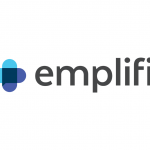Asian markets like India, Indonesia and Japan are among the world’s leading markets for fraud on Instagram, a new study has revealed.
Commissioned by Swedish startup A Good Company and HypeAuditor, the study of 1.84 million accounts worldwide, estimated that $744 million is being lost to bots and mass followers.
While the US and Brazil top the list of countries affected by Instagram fraud, India and Indonesia are at number three and four. Japan is at number six.
Among the nations surveyed, Asian markets account for 58 million users who are either bots or mass followers, measured against Statista estimates of the total number of Instagram users from these countries.
Among the problems highlighted by the survey was the large presence of ‘engagement pods’. Simply put, engagement pods are a quid pro quo arrangement where influencers who are part of a collective, routinely like and boost each others posts.
This is particularly true of micro-influencers who are valued disproportionately by niche brands due to the promise they hold of a connection with a relatively small but highly engaged audience.
Micro influencers were also found to have the highest level of anomalies in followers and ‘automatic likes’ (likes from bots).
The study was commissioned by A Good Company’s CEO and co-founder Anders Ankarlid after he noticed that the firm’s micro-influencer driven strategy was not delivering desired results in terms of sales. The study concluded that:
1. Instagram’s monthly active users data might be overrated by approximately 45%
2. The net market size in 2019 is $956 million, a 45% drop from the most conservative report
3. Loads of brands pour serious money down the drain hunting engagement and likes
4. The shiniest toy in the store, micro-influencers are the ones cheating the system the most.
The full report from The Good Company which also includes details of an anonymous survey that the firm ran with its Instagram influencer community can be read here.
source: http://www.mumbrella.asia
MARKETING Magazine is not responsible for the content of external sites.












